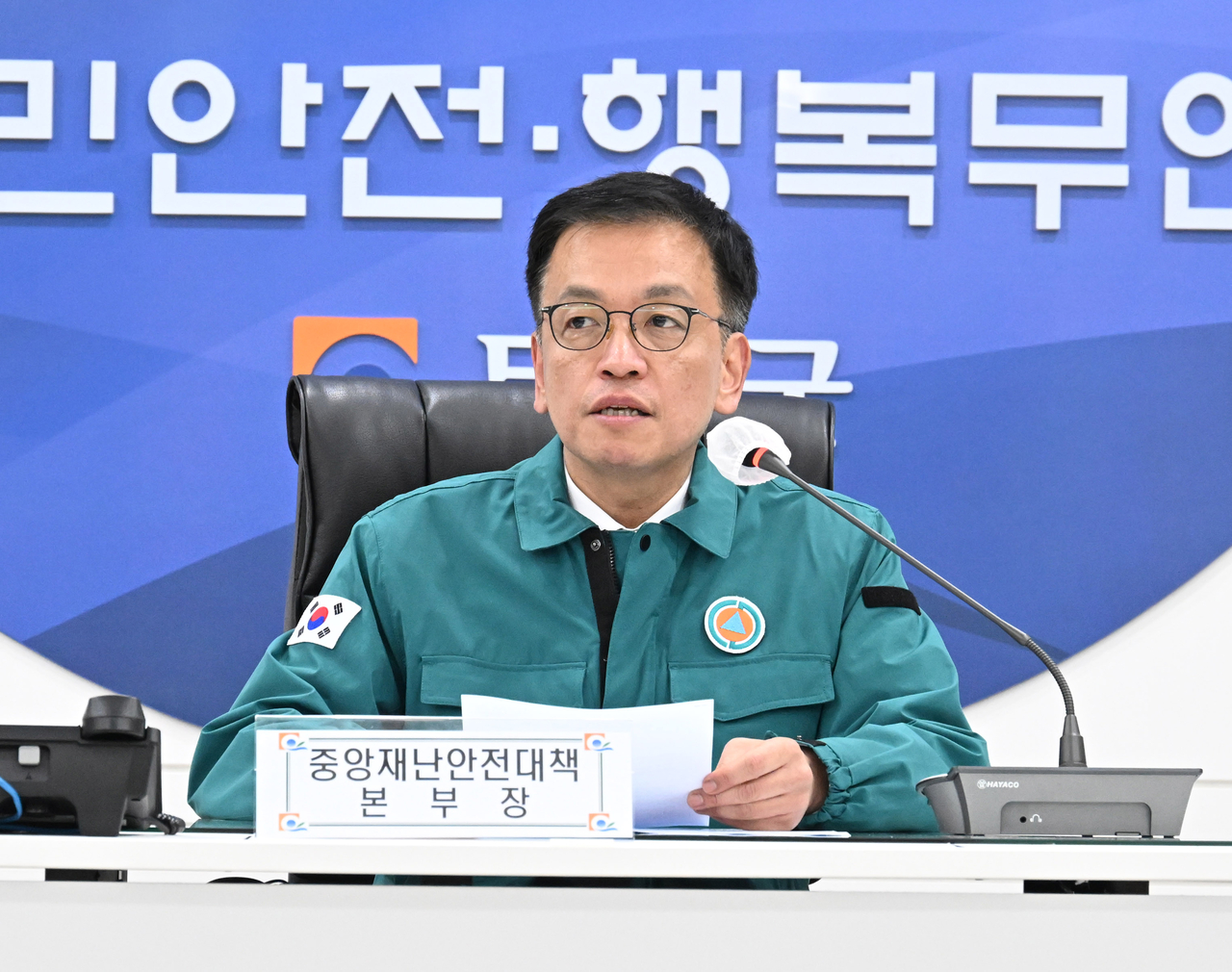
Acting President Choi Sang-mok presides over a Central Disaster and Safety Countermeasure meeting in Muan, South Jeolla Province on Sunday. Yonhap via The Korea Herald/Asia News Network
The administration of acting President Choi Sang-mok has been put to the test as it grapples with a deadly plane crash at an airport in the southwestern county of Muan, South Jeolla Province, amid the political turmoil and leadership vacuum stemming from President Yoon Suk Yeol’s impeachment.
The crash of a Jeju Air flight carrying 181 passengers at Muan International Airport came just two days after Finance Minister and Deputy Prime Minister Choi Sang-mok was appointed interim leader. Choi became acting president after the opposition-controlled National Assembly voted to impeach Prime Minister and then-acting President Han Duck-soo on Friday.
Choi on Sunday designated the southwestern county of Muan as a special disaster zone eligible for state support following the plane crash. The accident left 179 people dead as two were rescued from the crash, according to fire authorities.
READ: All but 2 feared dead after South Korea plane crashes with 181 aboard
Earlier in the day, Choi urged related government agencies to devote their full efforts to the rescue operations, saying that “all available equipment and personnel must be mobilized,” addressing the acting minister of the interior and safety; the minister of land, infrastructure and transport; the commissioner of the National Fire Agency; and the acting commissioner of the Korean National Police Agency.
The acting president stressed the need to save as many lives as possible and pledged to “spare no effort” in supporting the bereaved families.
He called for special attention to safety measures for firefighters and rescue personnel in the operation to prevent any further accidents.
READ: South Korea’s acting President Han Duck-soo impeached
Choi was at the helm of the government’s disaster response in the absence of Yoon, Han and Interior and Safety Minister Lee Sang-min, the latter of whom resigned in the days after Yoon’s martial law decree. The Central Disaster and Safety Countermeasure Headquarters, the pan-governmental disaster response body, was led by Choi, with Land Minister Park Sang-woo and Vice Interior Minister Ko Ki-dong as ranking officials within the group.
Ko took on the role of acting Interior minister after Lee’s resignation. The Ministry of the Interior and Safety and the Ministry of Land, Infrastructure and Transport have often played key roles in the government’s disaster response headquarters.
The Finance Ministry launched a task force to support Choi in communicating with other government agencies and to allocate the budget needed for disaster response. It also announced it was postponing the announcement of its 2025 economic policy road map “in consideration of the Jeju Air accident.” The date of the announcement will be determined later, the ministry explained.
Choi was already under pressure from the main opposition Democratic Party of Korea to approve the appointments of the three candidates recommended by the Assembly to fill vacancies on the Constitutional Court.
Han Min-soo, spokesperson for the Democratic Party, said Saturday that the members of the Constitutional Court and the Supreme Court have asserted that Choi has the power to nominate the justices. If Choi were to refuse to nominate the three candidates, then it would be an extension of the martial law imposed by Yoon, he added.
“We remind acting President Choi that refusing to nominate the Constitutional Court justices would be an act that extends the martial law imposition (by President Yoon) on the night of Dec. 3, which (Choi) had attempted to prevent, and an attempt to delay the deliberations of the Constitutional Court,” the main opposition spokesperson said.
Prime Minister Han’s impeachment came after the main opposition Democratic Party of Korea, which holds a 170-seat majority in the 300-member parliament, denounced his statement Thursday that he would hold off on appointing the Assembly’s three nominees to fill the vacancies on the Constitutional Court.
Shin Yul, a political science professor at Myongji University, said that how the government copes with Sunday’s disaster could determine the trajectory of the current administration under Choi.
“The administration under the acting president has been put to the test — its disaster response has been relatively slow compared with the pace of response under a normal government system,” Shin said via phone.
“If the government deals with the disaster properly, then it could work in Choi’s favor, as it could shield him from impeachment,” he added.

